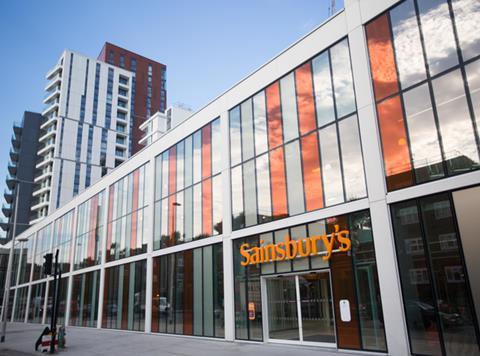
Top story
Sainsbury’s (SBRY) collapsed merger with Asda cost it £46m in the year to 9 March, the company revealed in its full-year results this morning.
The amount related to “deal preparation, integration preparation and financing” and have been written off, it said.
Sainsbury’s pre-tax profit plunged 41.6% from £409m to £239m due to one-off costs as underlying group sales excluding VAT rose 1.9% to £29bn. However, underlying pre-tax profit climbed 7.8% to £635m as core profitability improved.
Total group sales including VAT and fuel climbed 2.1% to £23.4bn. Group like-for-like sales including VAT and excluding fuel fell 0.2%.
Retail underlying operating profit increased by 10.7% to £692m. Underlying results excluded, among “others”, Sainsbury’s Brank transition, Argos integration, property-related items, restructuring costs, Asda transaction costs and defined benefit pension expenses.
Grocery sales climbed 0.6% to £19.45bn, driven by retail price inflation and improved sales mix, partly offset by volume decline, it said.
The company opened three new supermarkets and closed three during the period. It also opened 10 new convenience stores and closed five. Argos opened 90 new stores in Sainsbury’s and closed 46 stand-alone units.
A 191,000 sq ft reduction in Sainsbury’s supermarket space was mainly driven by 164,000 sq ft repurposed to Argos stores in Sainsbury’s.
The number of Argos collection points in Sainsbury’s stores increased to 317, with 169 openings partially offset by 44 closures replaced by Argos stores in supermarkets. As at 9 March 2019, Argos had 833 stores and 317 collection points of which 207 are within Sainsbury’s convenience stores. Habitat continues to trade 16 stores.
The company expects to open two new supermarkets and about 10 new convenience stores in the current financial year, and 10 Argos stores in supermarkets.
It rolled out SmartShop self-scan to more than 100 supermarkets, it was trialling digital Nectar in Wales ahead of a broader rollout later this year and it was testing the UK’s first checkout-free grocery store.
Sainsbury’s announced a new target to reduce net debt by at least £600m over the next three years and said it would accelerate investment in store estate and technology while reducing net debt and maintaining its dividend policy. It would invest to improve more than 400 supermarkets this year.
Mike Coupe, group chief executive, said: “I am pleased to report that we have increased profits, reduced net debt and increased the dividend. This is testament to the hard work of colleagues across the business and I would like to thank them for their commitment during this year of change.”
The business completed the integration of Argos that the group set out in 2016, delivering £160m in synergies ahead of schedule.
It also completed a major transformation of how it ran Sainsbury’s stores and it had made significant improvements to store standards in recent months, which remained a focus, Coupe said.
“Customers continue to rate us top for quality food and we are growing our premium ranges. We are also focused on reducing costs so that we can invest to make commodity products better value for our customers.
“We will increase and accelerate investment in the core business, investing to improve over 400 supermarkets this year.”
Some £4.7bn of revenue now came from the group’s online businesses and it was increasing investment in technology to make shopping across Sainsbury’s, Argos and Sainsbury’s Bank as quick and convenient as possible.
“We will also continue to strengthen our balance sheet and are making a new commitment to reduce net debt by at least £600m over the next three years.”
Coupe said he was confident in the strategy and also clear on what the group needed to do to continue to evolve the business “in a highly competitive market where shopping habits continue to change”.
Sainsbury’s shares rose 5.9% to 235.7p in early trading.
Morning update
Soft drinks group Nichols (NICL), which holds its AGM today will tell shareholders that total group revenue for the first quarter of 2019 was £30.6m, up from £27.8m in the same period last year.
International sales growth was “strong” with revenue totalling £6.5m in line with expectations –24.4% ahead of the prior year period. Nichols said the Middle East returned to growth following the relatively softer comparatives in Q1 2018.
First-quarter sale in the UK, first quarter sales totalled £24.1m – 6.8% ahead of the prior year period.
John Nichols, non-executive chairman, said: “Whilst we believe that trading conditions will remain challenging in 2019, we anticipate that full year earnings will be in line with market expectations.”
On the markets this morning, the FTSE 100 climbed 0.3% in early trading to 7,438.9pts.
Sainsbury’s apart, early risers include Majestic Wine (WINE) rose 2.9% to 265p, PayPoint (PAY) 2.5% to 1,031p and British American Tobacco (BATS), 1.15% to 3,023.5p.
Fallers so far today include PureCircle (PURE) down 4.7% at 290.8p, Hilton Food Group (HFG), down 2.6% at 990p, Just East (JSE) off 2% at 685p and Ocado Group (OCDO) down almost 1% at 1,349.5p.
Yesterday in the City
The FTSE 100 closed down 0.3% at 7.418.2pts.
Climbers included PureCircle (PURE), up 4.8% at 305p, Tate & Lyle (TATE) up 4.6% at 767.6p, Hilton Food Group (HFG) picked up 2.6% at 1,016p and Greencore Group (GNC) climbed 1.8% to 230p.
The biggest fallers of the day included Greene King (GNK), off 7.5% at 641p following the morning’s pre-close trading statement despite trumpeting market outperformance. Whitbread (WTB) dipped 6.2% to close down 4,460p after reporting its full-year results, DS Smith (SMD) slipped 4.2% to 357p and Ocado (OCDO) dropped 1.9% to 1,3362p.
Mondelez International (MDLZ) posted a 3.4% fall in net revenues to $6.5bn in the first quarter driven by unfavourable currency impacts; Organic Net Revenue grew 3.7%, with balanced volume/mix and pricing.
Gross profit declined $256m and margin decreased 240 basis points to 39.7%.Adjusted Gross Profit increased $121m at constant currency.
Dirk Van de Put, Chairman and CEO, said: “Our strong start to the year demonstrates clear progress against our plans to accelerate volume-led growth by adopting a more consumer-centric and agile mindset.
“We continue to see solid fundamentals in our categories and key markets, including good momentum in emerging markets. Our progress reinforces our confidence that the investments we are making behind our global and local brands, our sales capabilities and our innovation will deliver sustainable long-term growth and create value for our shareholders.”
Imperial Brands (IMB) confirmed its intention to sell its worldwide premium cigar business.
It said the premium cigars business had performed well with good revenue and profit growth but it had a different consumer base and route to market from the group’s other businesses.
Imperial said the intended sale formed part of a divestment programme announced last May expected to generate up to £2bn by this time next year at the latest.







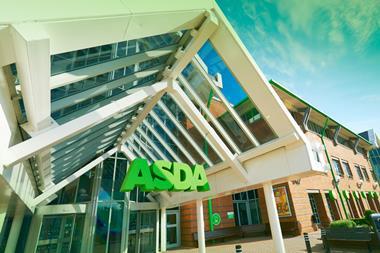
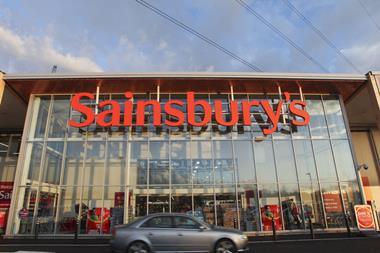
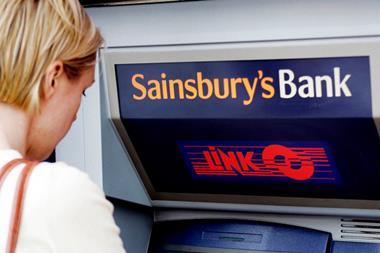
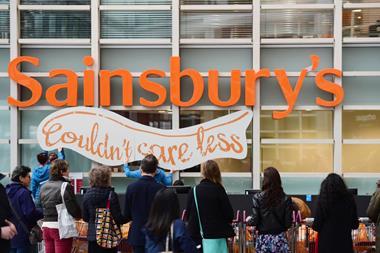
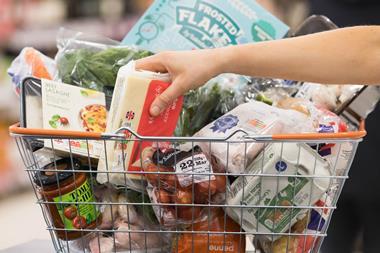
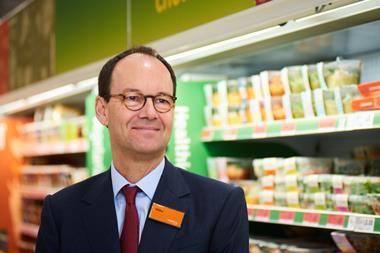
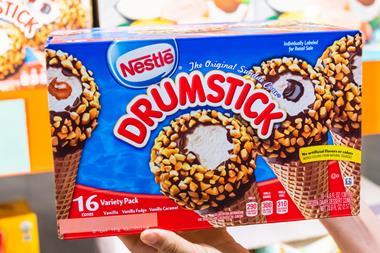
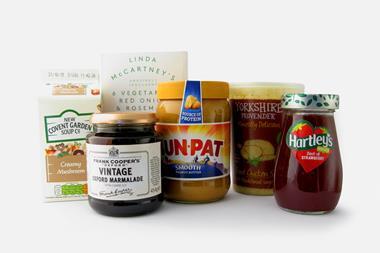

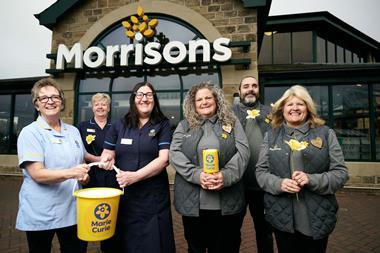
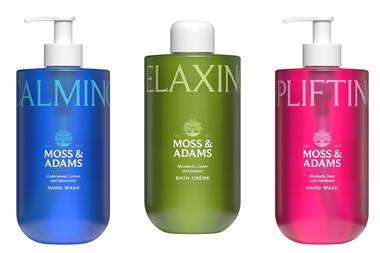

No comments yet